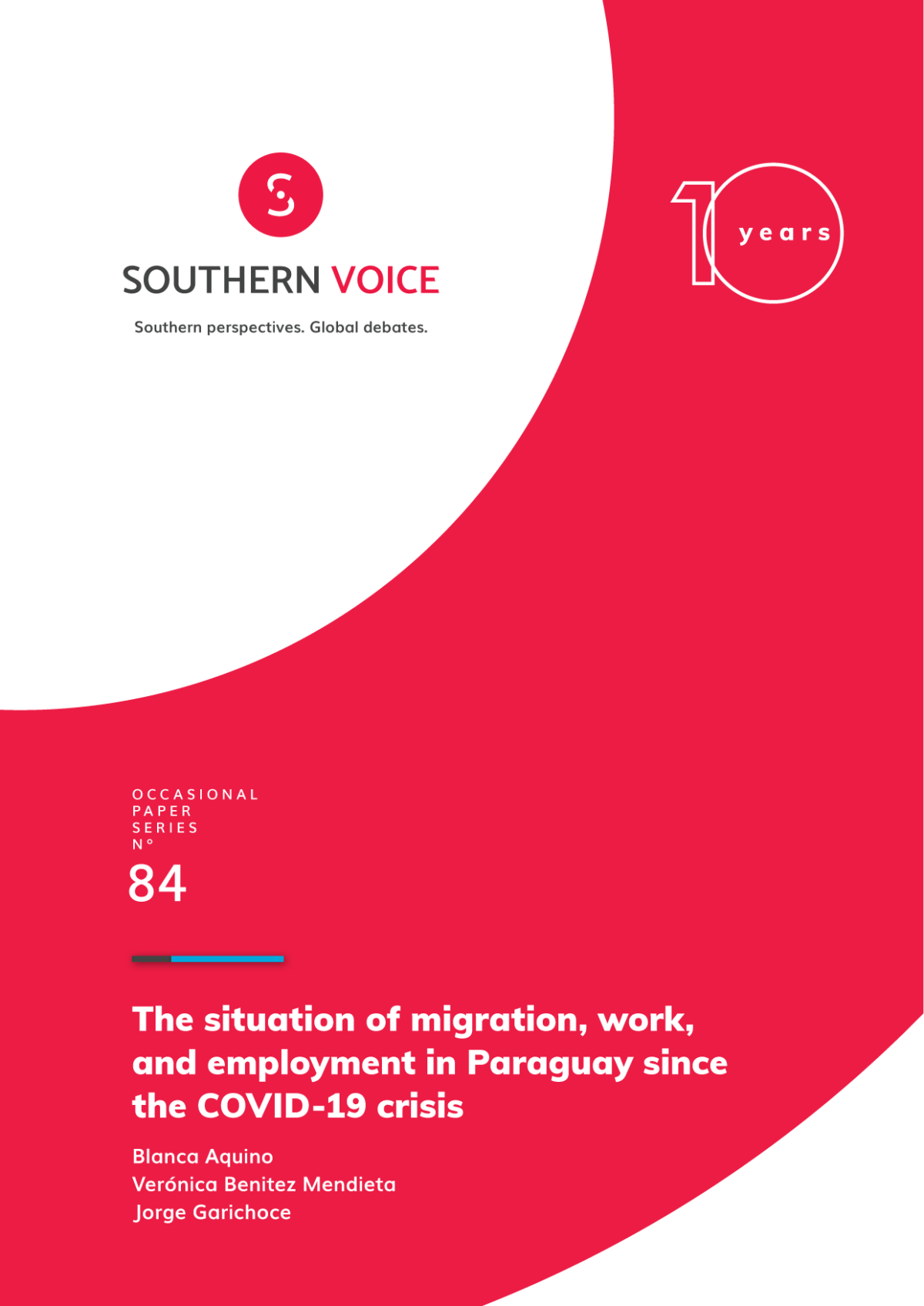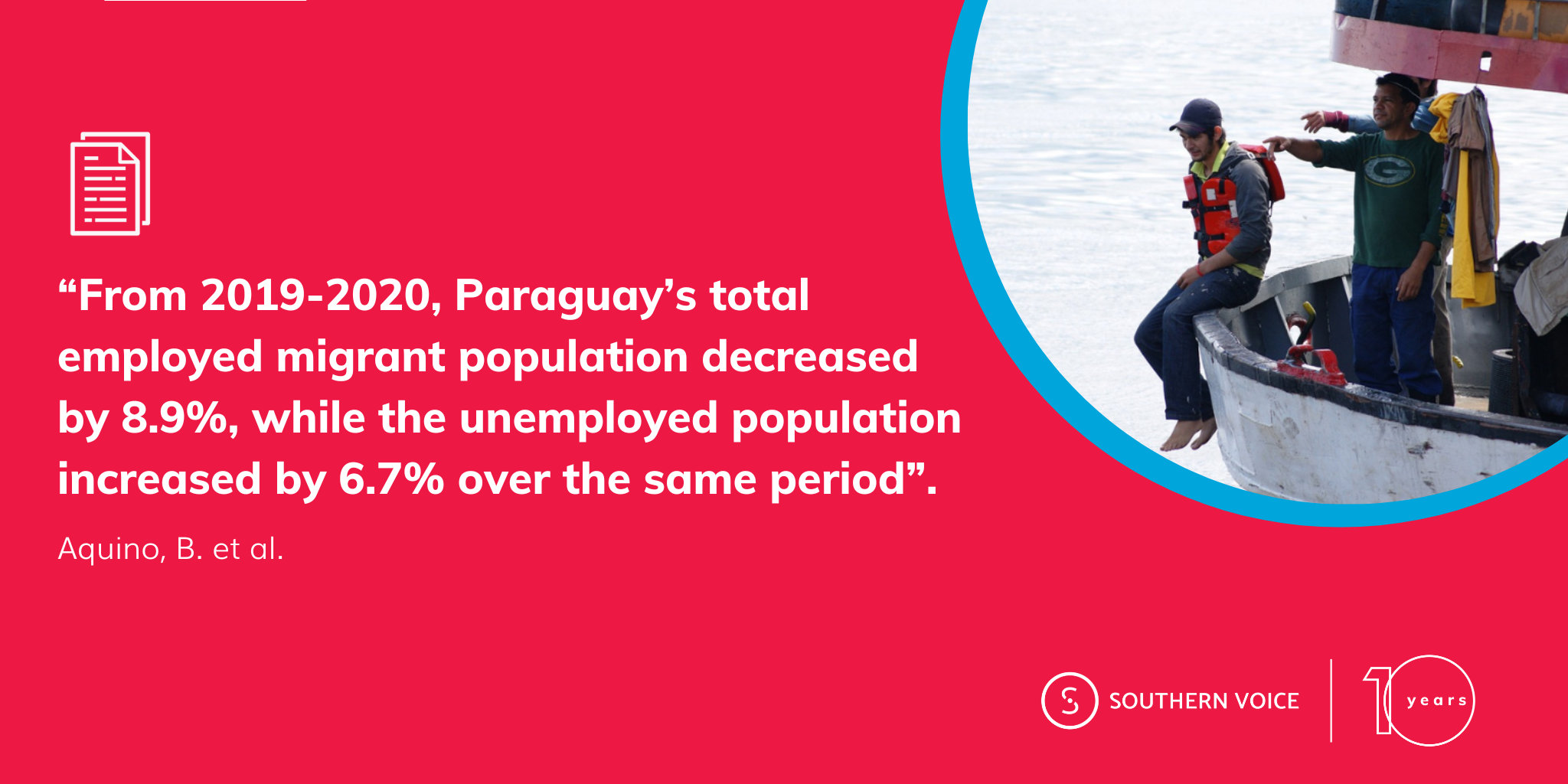COVID-19 forces us to think about the future, and what we do today to create it.

This study assesses the labour and employment situation among both internal and international migrants in Paraguay in relation to the COVID-19 pandemic, based on an analysis of the period 2019-2021. The research employs a combination of quantitative and qualitative approaches, using data from the Permanent Household Survey published by Paraguay’s National Institute of Statistics (INE), in addition to data from interviews
with migrants, migration experts and participant observation.
Overall, this study shows a level of equality between migrants and non-migrants in relation to SDG 10. It highlights the access of migrants to vaccines and subsidies during the COVID-19 pandemic, and in terms of labour, findings underline generally high employment rates for migrants, and finds similarities in terms of the economic and labour impacts of COVID-19 across migrant and non-migrant groups. However high labour informality rates among both migrant and non-migrant population suggest this should be considered as a systemic challenge to overcome in Paraguay, since labour formality is an important determinant of
decent work.
The study also stresses difficulties among international migrants in relation to the legal framework for residency in Paraguay. While policy action in response to the pandemic was helpful for both migrants and non-migrants, the study underlines the need for more structured public policies in relation to migration, prioritising access to education, health, and job opportunities.


